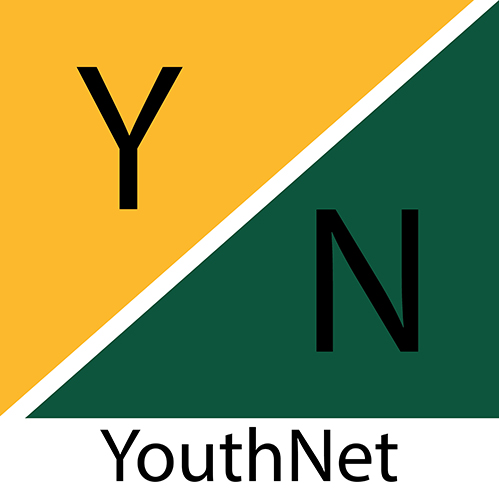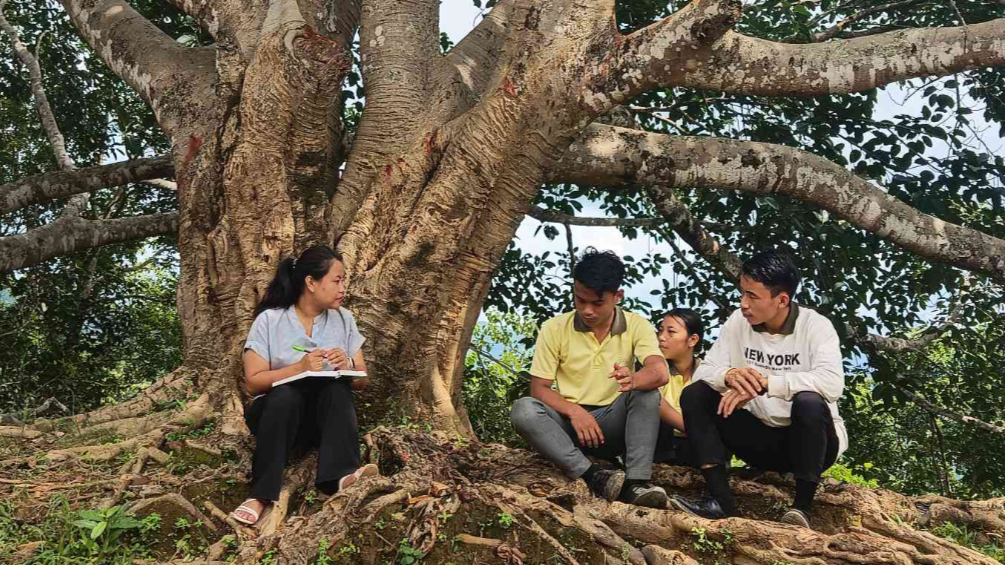

Nagaland Education Project - The Lighthouse
Nagaland Enhancing Classroom Teaching and Resources (NECTAR)
The Department of School Education, with support from the World Bank launched the ‘Nagaland Education Project – The Lighthouse – Nagaland Enhancing Classroom Teaching and Resources (NECTAR)’. The Nagaland Education Project – The Lighthouse (NECTAR) Project was envisioned with the twin objectives of enhancing governance of schools statewide and improving teaching practices and learning environments in school complexes. By employing systematic tools and strategy the project seeks to transform Nagaland’s public education system in a sustainable manner.
The NECTAR project will be directly implemented by the Department of School Education (DSE), Government of Nagaland, for a period of five years from 2021 to 2026. As part of the NECTAR Project, the World Bank along with the DSE has commissioned a consortium (P3) of four partner organizations – AQES, YouthNet, AQEF and Samarthya for providing technical support on strengthening school governance, capacity building of teachers, school leaders, education officials, and SMCs/SMDCs, design and delivery of performance incentive grants (PIG) and institutionalization of these reforms.
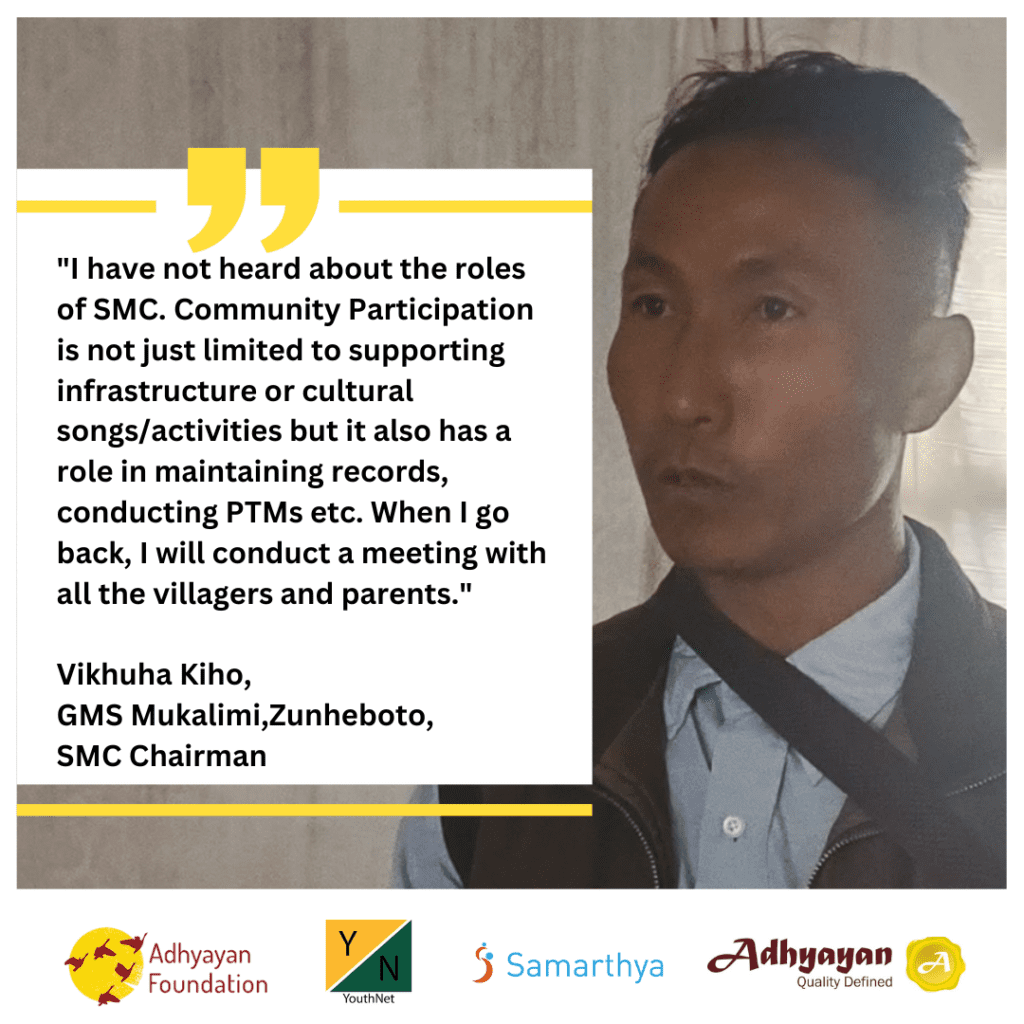

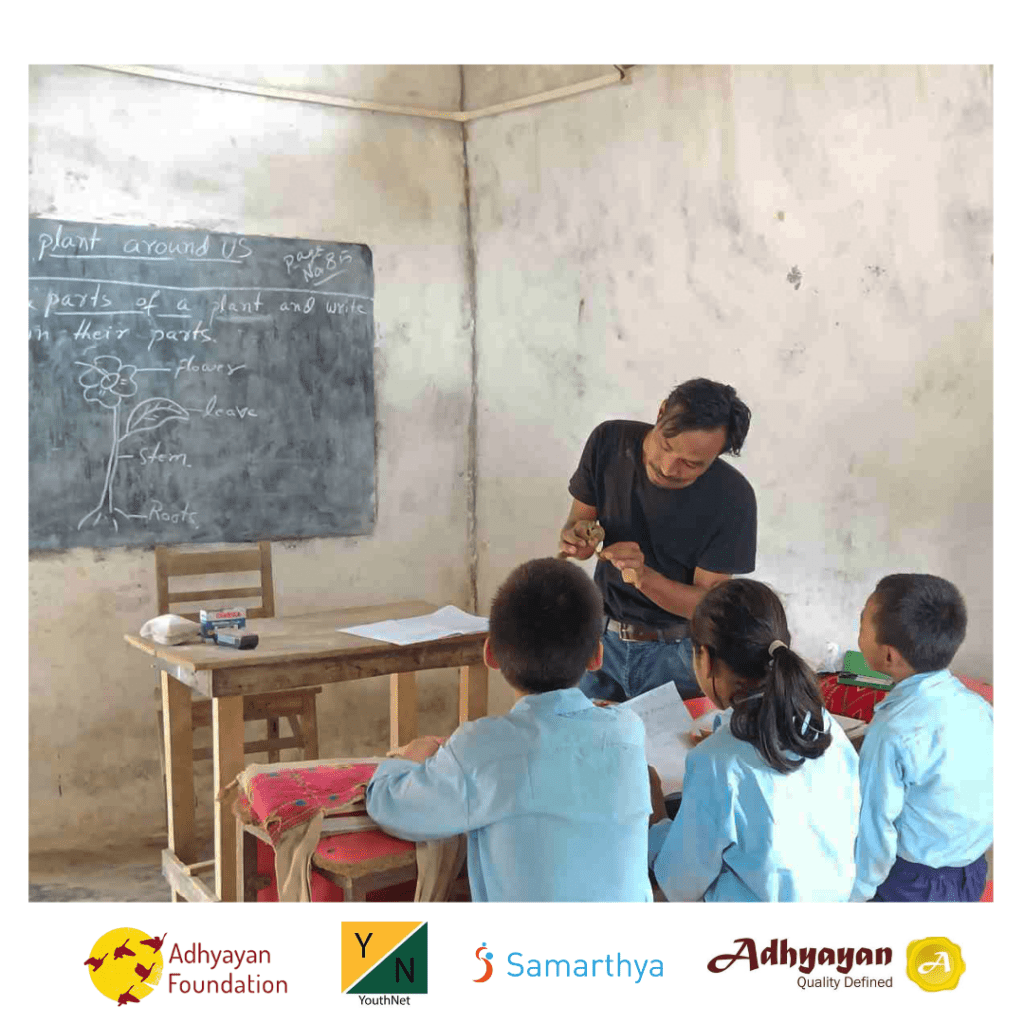

Project Objectives
- Enhance the governance of schools across the State
- Improve teaching practices and learning environments in selected school complexes
Project Components
- Improving System and School Management
- Enhancing the teaching and learning environment
- Technical Assistance
Project Components Project SubComponents relevant to P3
- Strengthening Governance and Capacity building of service providers and clients
- Strengthening Teaching – Learning Systems
- Strengthening Continuous Professional Development of Teachers
- Enhancing Community Ownership and Accountability for Improved School Management
P3 Key Activities 2022
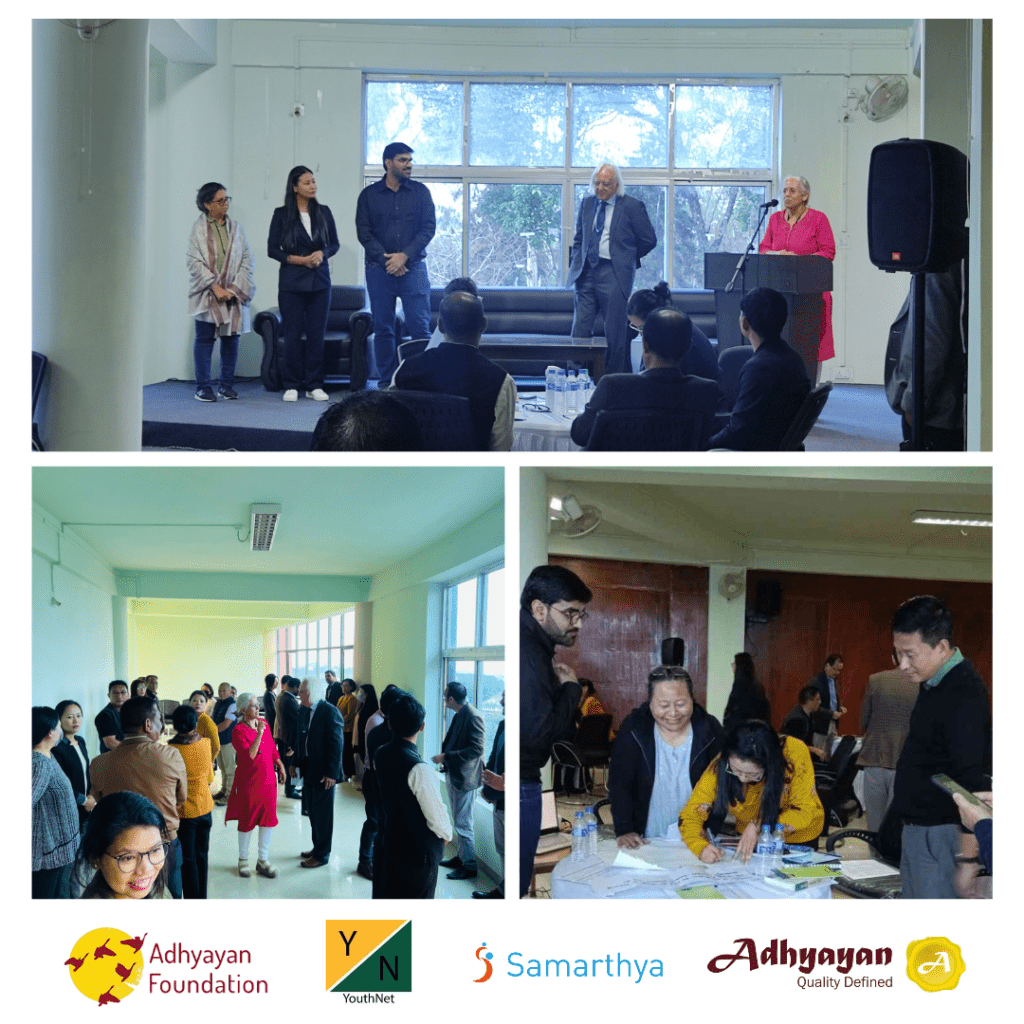

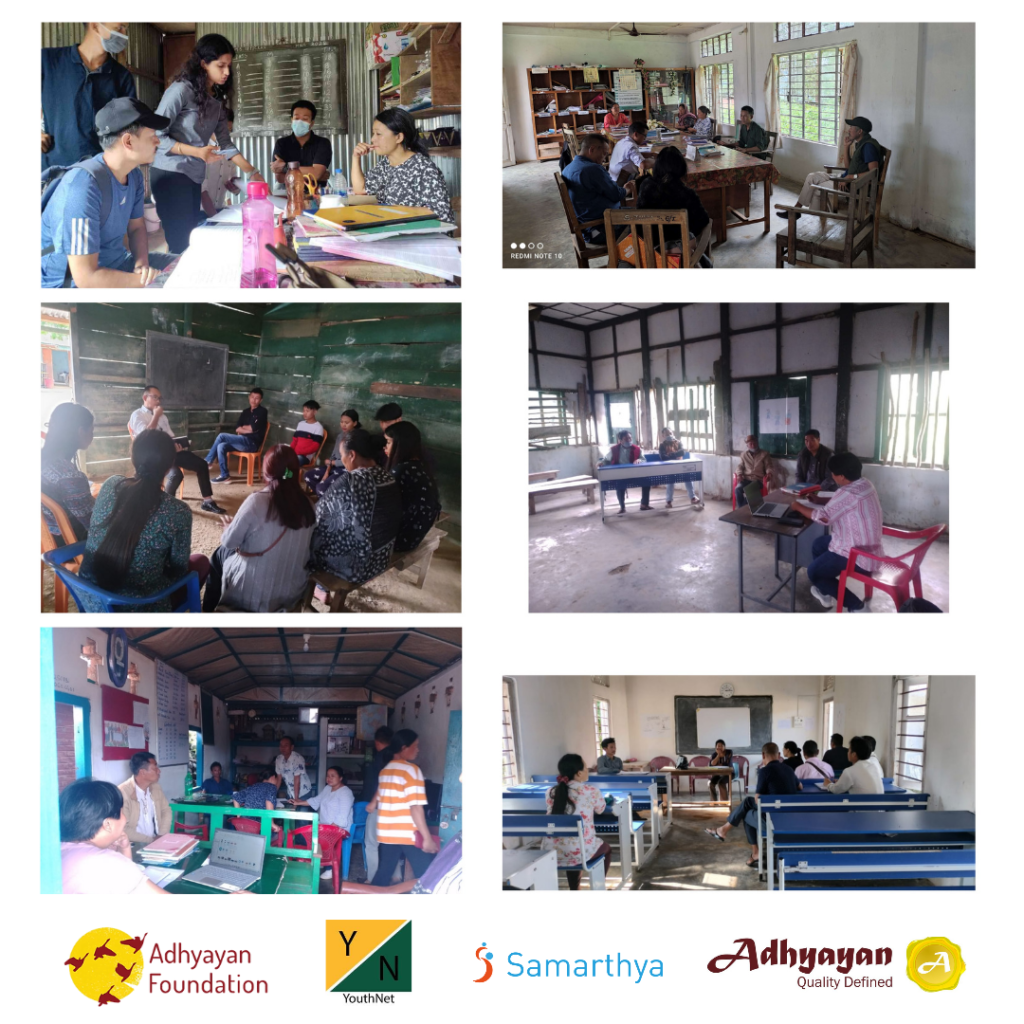

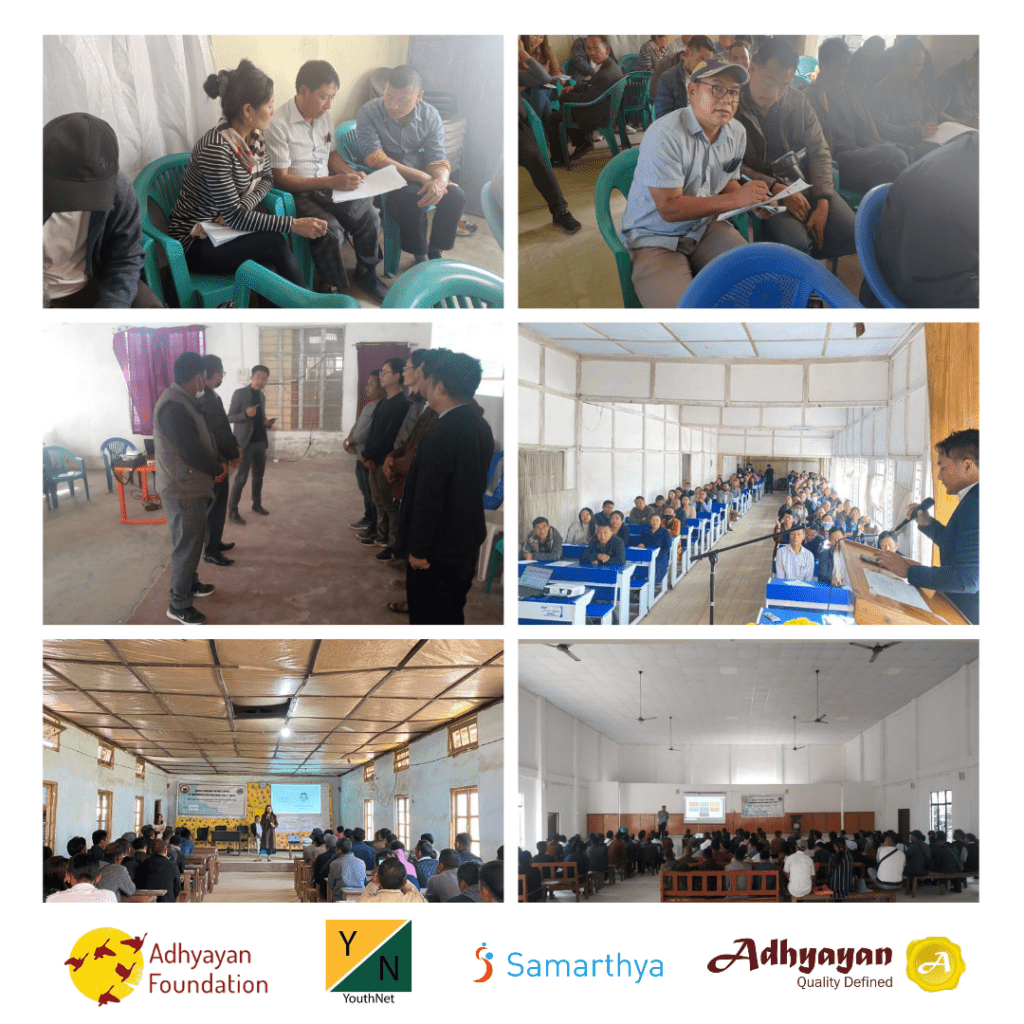

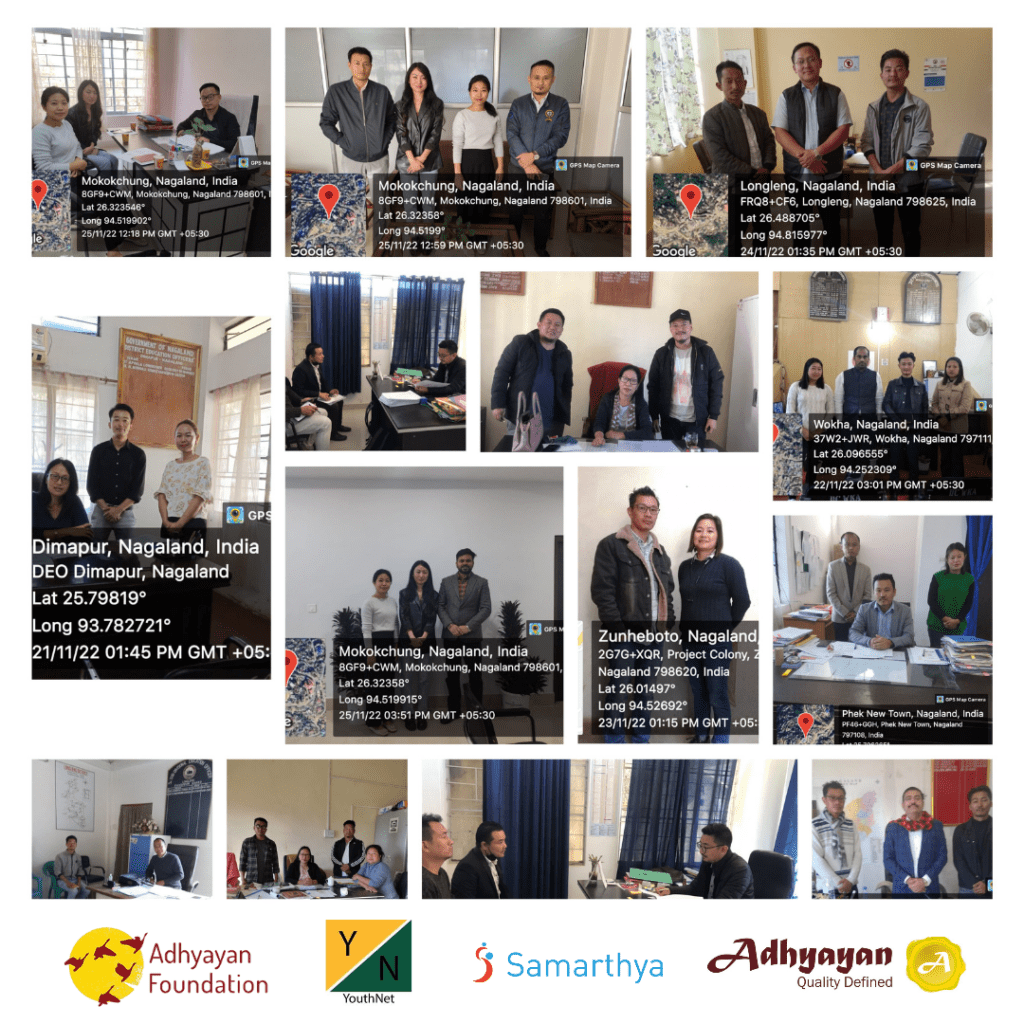

(a) School Reviews: P3 conducted and completed reviews across 32 schools (2 per district) that represent the strengths and challenges of schools across the state. All the 32 School Reviews have been completed across the 16 districts of Nagaland. This is a foundational process when beginning to understand governance in the education system, as it enables all stakeholders to review their performance against a national school quality benchmark, the Shaala Siddhi framework. Thus, creating a common language and expectation of what good schools look like. A shared understanding of the journey towards school improvement will enable all stakeholders to understand their roles and responsibilities and fulfil them to the best of their abilities.
(b) Visioning Workshop: The visioning workshop for the leadership of the Department of Education, SCERT, SIEMAT, NBSE and Samagra was held in October, 2022, to enable all organs of the State to begin to build a common language, vision and mental model for working together. The objective of the visioning workshop was to enable the State education leadership to collaboratively embrace the opportunity offered by NECTAR. Additionally, the workshop aimed at supporting key departments that govern education to commit towards beginning the improvement journey of their own department. The workshop had three sessions as given below.
- Session 1: What does research tell us on organizational change and development?
- Session 2: What is the purpose of education?
- Session 3: What do we want to improve?
Following the workshop, a school vision and strategy document was prepared which highlighted key challenges of the Nagaland education system, the role of NECTAR in implementing a vision for education and the strategy for achieving this vision.
(c) Supporting Performance Incentive Grants (PIG):To enhance awareness and build capacity of SMCs and SMDCs on usage and monitoring of Performance Incentive Grants (PIG), P3 has Undertaken school visits to build understanding and monitor usage of PIG grants for Batch 1, Screen applications by schools for PIG for Batch 2, Capacity building of SMC and SMDC members of Batch 2 to create and submit proposals.
(d) State Audit: The internal State Audit is an ongoing process and its main objective is to understand the governance structure, systems ,processes and resource availability of key departments of the Nagaland education system including DoSE, Samagra, SCERT, NBSE and SIEMAT. This exercise will enable the design of relevant interventions to improve the quality of governance and build capacity of key State level education departments. Additionally, it will support creation of draft curriculum framework, standards, competencies, JDs, SoPs and in-service capacity building modules for State level education officials.
The State audit involves conducting preliminary meetings with the key stakeholders of different departments following which a questionnaire is shared for approval and data collection on the current status, work-flows, existing standards and competencies of education officials across various levels. Currently, the questionnaire has been shared with all the key State education departments including DoSE, Samagra, SCERT, NBSE and SIEMAT. The questionnaire has already been approved by SIEMAT and SCERT.
(e) District and Cluster Profiling: The objective of this exercise is to understand the current status of systems and processes at the level of the districts and clusters, as well as what resources are available which can be leveraged for strengthening systemic interventions to improve the quality of governance. Additionally, this exercise will also enable creation of school clusters/complexes and draft curriculum framework, standards, competencies, JDs, SoPs and in-service capacity building modules for education officials.
Meetings have been conducted with the DEOs, ADEOs, Sr. SDEOs, SDEOs, JEOs, AEOs and EBRCs, based on the availability of the officers, across the 16 districts. The State Stakeholder consultations have been completed with DCs, ADCs and EACs, based on the availability of the officers, across 16 districts. School profiling and consultations have been carried out with the leaders of 10-12 schools in each of the 16 districts. 1st Draft of the district profiling report has been submitted and the mapping of 366 clusters across Nagaland has been identified. 2 leaders will be identified from each cluster will be trained by SEIMAT to be independent reviewers alongwith the Education Managers from each block which consist of SDEOs, EBRCs, AEOs, SISs, etc wherever applicable or available.
(f) Meeting with SIEMAT/SCERT on School Leadership development Programme (SLDP): The P3 team collaborated with SIEMAT/SCERT to develop a comprehensive strategy for designing a new SLDP model for current and aspiring school leaders. Key areas of discussion included the following.
Development of a scalable model for SLDP which focuses on different categories of school leaders based on their years of service Efficient scheduling of training programmes which prioritizes newly appointed school leaders; Setting up a cohort of SLDP Senior Facilitators who will play the role of master trainers Creation of an action plan which enables all existing school leaders to be trained within 2 years and for a stable state of annual programmes for tenured aspirant leaders and for leaders beginning their headship journey.
(g) Participation in World Bank’s TEACH Tool training programme: The tool has been designed to help countries collect data on teaching practices and improve teaching quality through gaining a deeper understanding of children’s experience in classrooms. 4 Program Managers and 2 education sector experts of the P3 team participated in the training programme.
(h) Interviews with Parents, School Heads, Teachers and Students: To understand the current status of PTMs in Nagaland, to support development of the Community Engagement Models, Identify best practices of PTMs, Identify gaps in how PTMs are conducted, parents, School Heads, Teachers and Students were interviewed across 8 districts.
